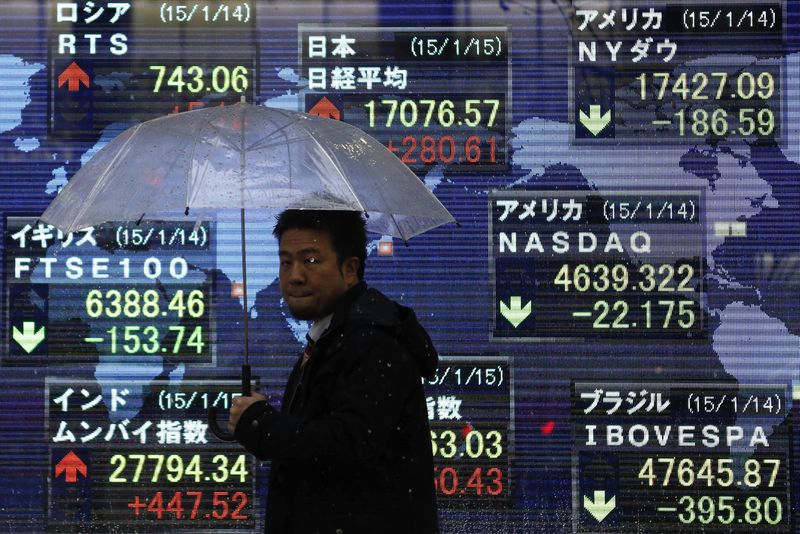By Gina Lee
Investing.com – Asia Pacific stocks were mostly down on Tuesday morning and bonds extended a selloff, which left the benchmark 10-year U.S. Treasury yield at the highest since 2018. Investors continue to monitor high inflation, tighter monetary policy, and the COVID-19 lockdowns in China.
Japan’s Nikkei 225 fell 1.32% by 10:41 PM ET (2:41 AM GMT) and South Korea’s KOSPI fell 0.93%.
In Australia, the ASX 200 was down 0.58%, with the National Australia Bank business confidence index for March 2022 at 16.
Hong Kong’s Hang Seng Index was down 0.25%.
China’s Shanghai Composite inched up 0.01% and the Shenzhen Component edged up 0.11%. The country approved the first batch of new video game licenses since July 2021.
U.S. Treasuries fell, with the 10-year yield at 2.80% and reflecting expectations that the U.S. Federal Reserve will tighten its monetary policy at the fastest rate since 1994. Australian and New Zealand debt also fell.
Oil erased most of its gains sparked by Russia’s invasion of Ukraine on Feb. 24. The ongoing COVID-19 outbreak and lockdowns in China are also impacting fuel demand. Investors also await the U.S. consumer price index, due later in the day.
“What we’re faced with this year is stagflation,” Bulltick LLC head of global macro research Kathryn Rooney Vera told Bloomberg.
“It’s a very complicated environment that the Fed has found itself in” and the market is pricing in potentially 50 basis points of interest rate hikes at each of the next two policy meetings, she added.
Chicago Fed President Charles Evans said an accelerated pace of rate hikes to combat inflation is worth debating. The central bank is doing all it can to avoid “collateral damage” from raising interest rates, a “brute-force tool” that can act as a “hammer” on the economy, Fed Governor Christopher Waller added.
Fed Governor Lael Brainard and Richmond Fed President Thomas Barkin will speak later in the day, followed by Cleveland Fed President Loretta Mester and Philadelphia Fed President Patrick Harker following on Thursday.
One of the more dangerous scenarios for markets “is that we have to raise rates at such a pace that it will clamp down on growth,” AlphaSimplex Group chief research strategist Kathryn Kaminski told Bloomberg.
“That’s the scenario that most people are worried about.”
Policy decisions from other central banks are due throughout the week, starting with the Bank of Canada and the Reserve Bank of New Zealand on Wednesday. The European Central Bank and the Bank of Korea will follow a day later.
Meanwhile, the credit derivatives market ruled Russian Railways JSC to be in default after the company missed an interest payment in March. Russia also warned that it would take legal action should Western sanctions force it into a sovereign default.
China will release trade data on Wednesday, with the U.S. releasing retail sales and University of Michigan consumer sentiment data a day later.
